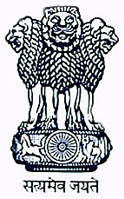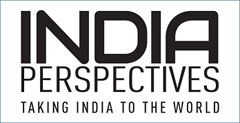Ambassador Andrey Kortunov, Dr. T. C. A. Raghavan. First of all, I express our very deep appreciation to both RIAC and ICWA for keeping the flag flying, the intellectual flag flying. Despite the COVID pandemic this is already the second conversation that we are having this year and we would really like to thank all the participants who have joined us today- new friends of India-Russia relations, old friends of India-Russia relations. Also some of us have been beneficiaries of the leadership of Ambassador Gleb Ivashentsov and Ambassador Asoke Mukerji have been in a sense gurus to all of us in navigating the India-Russia relationship. Ambassador Yogendra Kumar, Nandan, Nitin Pai, Atul Aneja, thank you very much for your continued interest in Russia. Similarly, a very warm appreciation to all our Russian friends, particularly – from RIAC and the Oriental Institute and MGIMO who keep the faith in the India-Russia relationship.
Thank you very much for the opportunity to speak a little ahead of my turn because I have a delegation in town. I deeply appreciate the indulgence shown by Ambassador Kudashev, my very dear friend from Delhi, and Ambassador Raghavan for allowing me to speak first.
Let me pose three issues and six questions which I think are important. The strength of the India-Russia bilateral strategic partnership is well-proven. This has been the subject of many discussions. As Director General Kortunov said let us look at key trends that are coming out. I would say that India-Russia face three common challenges. There are three transitions in the coming decades that we need to address. And there are two questions under each of these transitions and I will list them.
The first transition is the geopolitical transition. Everybody agrees that the 1945 World Order is changing, in front of our eyes, some by intention, some by old age and some by need for renewal. The key question that India and Russia should discuss and agree upon is, do we focus just on the preservation of the 1945 World Order or do we combine preservation along with purposeful reform. I think that India and Russia are well-placed to have this conversation and in taking forward this conversation the world community itself will benefit from both if India and Russia were to agree with each other. The second question under the geopolitical transition is that both India and Russia were the late comers to the beneficial aspects of globalization. Unfortunately, it didn’t last very long. Globalization is now turning on itself, there’s a process of de-globalization. So how do we protect ourselves, our interests and our bilateral interests in a phase where globalization shrinks and de-globalization is spreading its negative tentacles? Our strategic autonomy has a particular meaning in this context and I think the concept of strategic autonomy, as it means in India what it means in Russia), I think both countries are practitioners of this, one of the long-standing practitioners in the international system. I think we will benefit from an exchange of views. You know, there’s Aatmanirbhar Program in India which Prime-Minister Modi announced a couple of months ago. There are similar projects in Russia which have the same objective. How do we keep our doors open to the outside world but, at the same time, focus on national capabilities and national interests and reduce external vulnerabilities?
The second transition is the technology and the energy transition . Of course, as we speak, the whole Arms Control System is fraying and everybody agrees that there’s a need for a new Arms Control System. Whether it is taken forward just by the United States and Russia or in a more multilateral framework is something that we can focus on. It is just no longer nuclear deterrence, it’s also space and cyber that have been added to the equation. Of course there are new disruptive and enabling technologies, artificial intelligence, the use of drones in warfare. As we speak we all are witnessing the major impact that this is having on the unfortunate conflict situation between Azerbaijan and Armenia. The second question under the technology and energy transition is the transition from hydrocarbons. Russia is a hydrocarbon superpower and will continue to be so for the coming decades. India is a hydrocarbon importer but I think both have an interest in having the transition that will protect their long-term interests. And what I mean under interests – these are calculated in terms of decades. And one of the aspects, of the attributes of the strategic partnership is how do you calculate your relationship in terms of months, years and decades. India and Russia calculate their interests in decades.
The third transition that is taking place is that India and Russia, for different reasons, are facing similar geopolitical pressures on their immediate peripheries. There may be some common roots, some different roots, but India and Russia had settled neighborhoods. These neighborhoods are now being redefined not just by what we do but also by external factors. Now, I think about an exchange of views on how we move forward taking into account our interests for the coming decades. Many of you will remember that in 1993 India and Russia focused on cooperating in terms of meeting the challenges of extremism and separatism. This has been a very successful collaboration. Now those are being replaced by certain other, different challenges. Of course, the situations of India and Russia are not similar but I think we have a similar interest and motivation in seeing how we can meet these challenges even better.
Lastly, I will say at the level of our leadership we have the benefit of an extraordinary level of trust and understanding between President Putin and Prime-Minister Modi. I think this is an asset of great value for the international system and for our bilateral relationship. I think, taking this into account, we are better placed than many other bilateral relationships. We are better placed than many other countries in taking forward our interests, in protecting interests in this very complex and very disturbed world order.
So let me once again thank you for your indulgence and for allowing me to speak as I put forward these three transitions as food for thought for this extraordinary panel of speakers that we will be participating today. Thank you very much!












